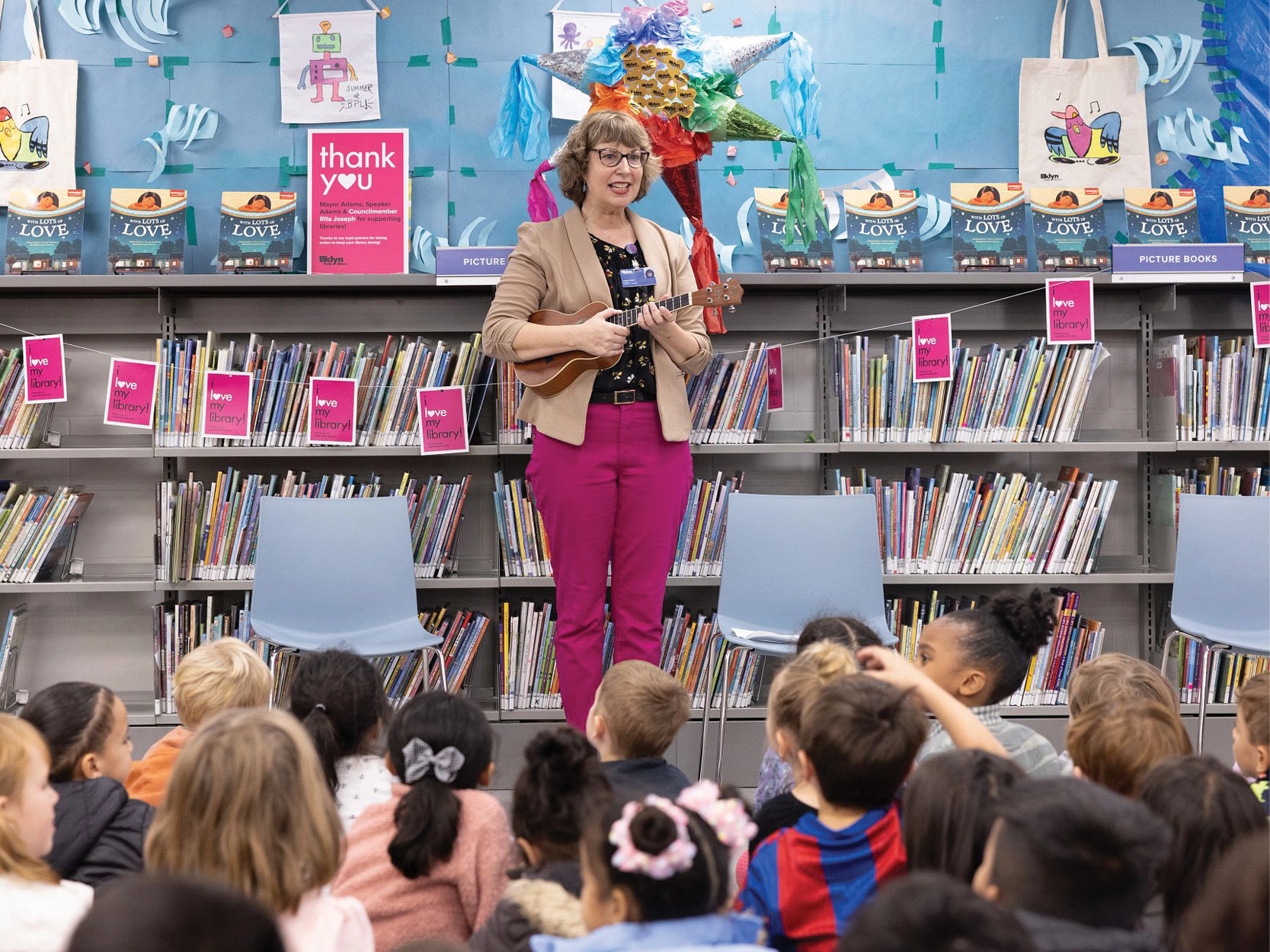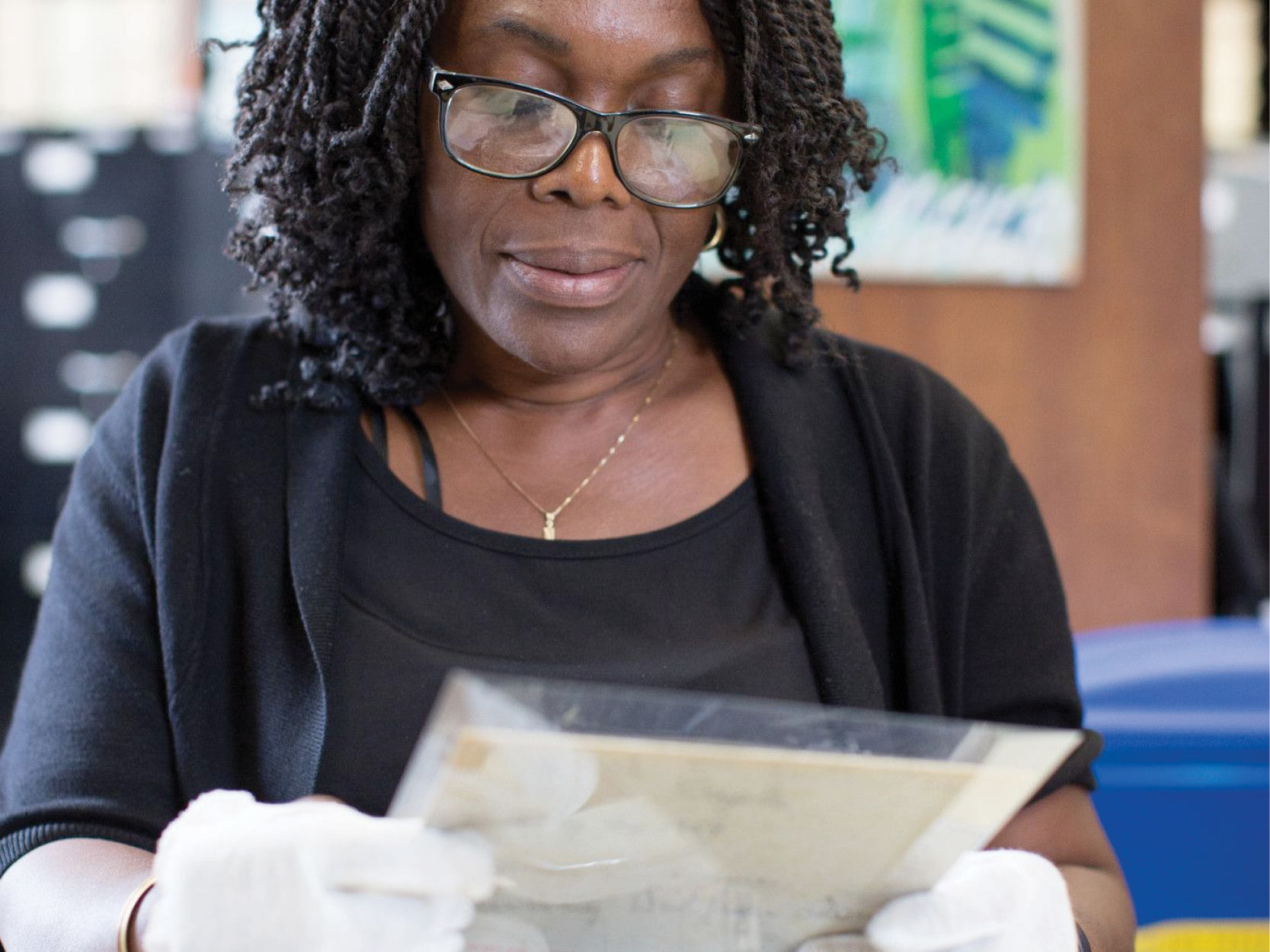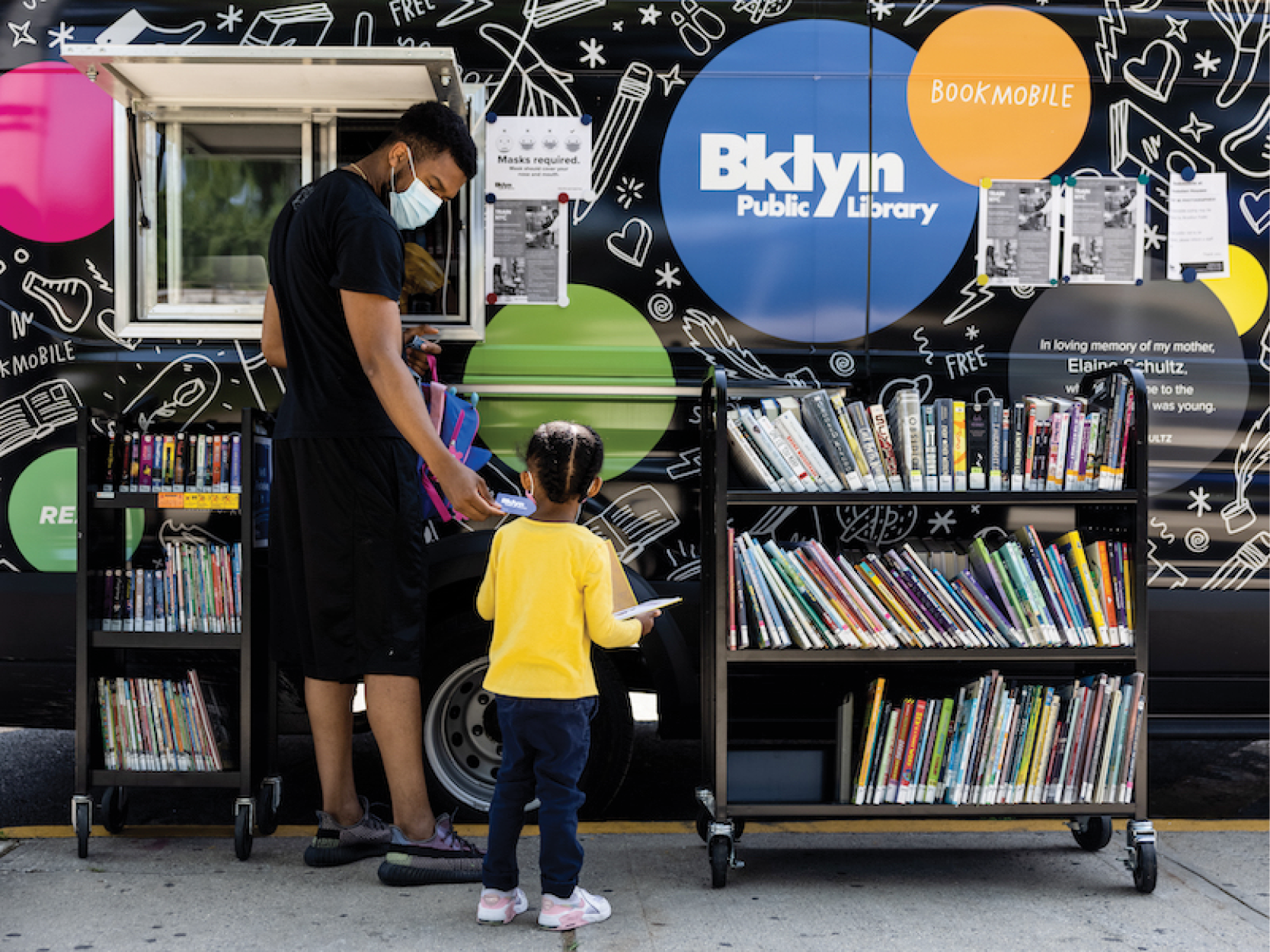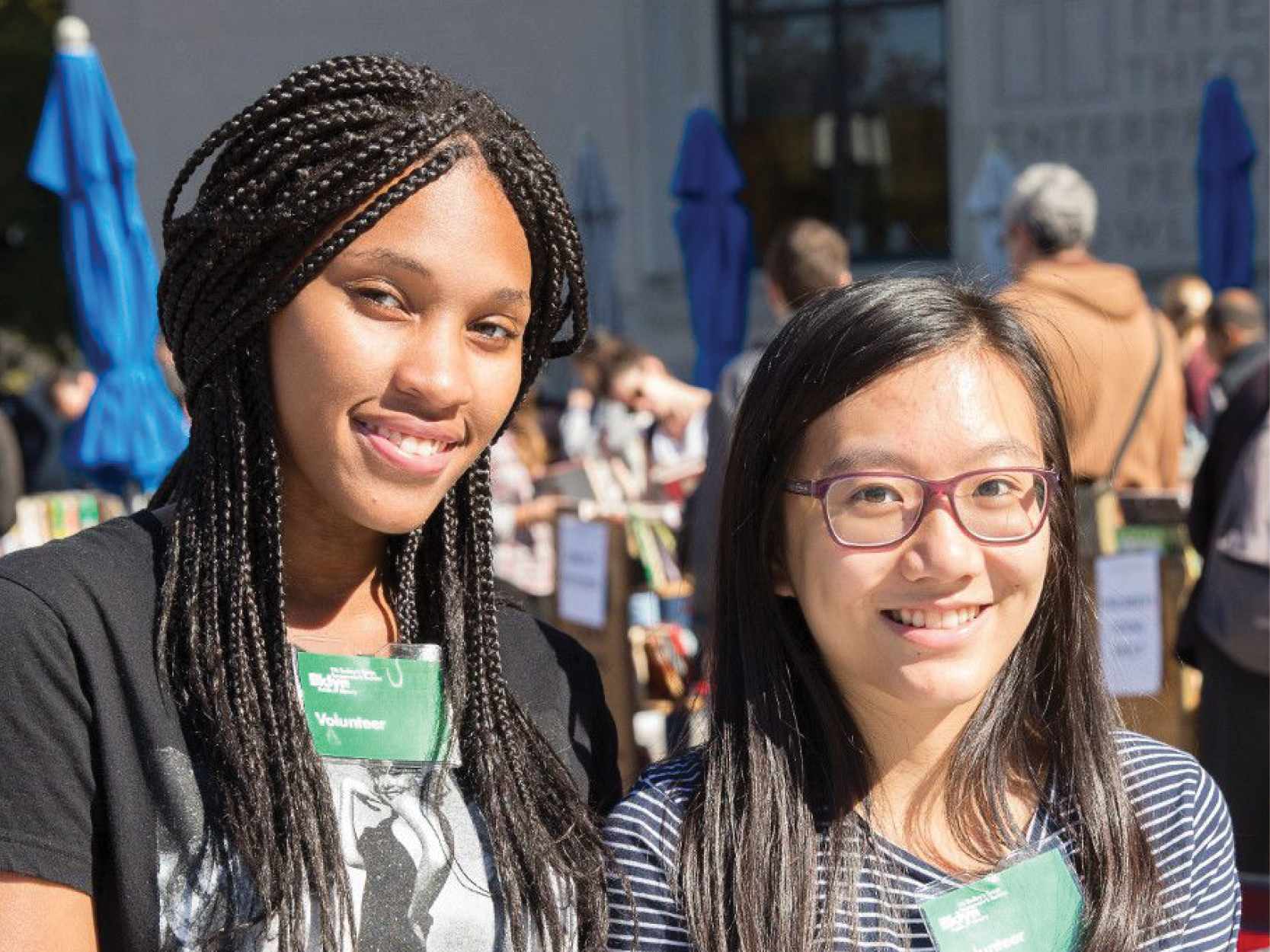The Library of Congress Subject Headings (LCSH) is a thesaurus of controlled vocabularies used in subject indexing of bibliographic records by libraries, archives and museums. Subject headings are assigned to items in a library catalog to facilitate users’ search and discovery of resources relating to similar subject matter. In Brooklyn Public Library’s catalog, subject headings are listed as tags under the details tab in the bibliographic record. Users can click the subject heading tags and explore related resources in the library’s collection.

Subject headings facilitate access and discovery, but they can also be more harmful than helpful. These subject headings often reference people or groups of people using descriptors that are considered biased, offensive and pejorative. Among these offensive subject headings is the phrase illegal aliens—a once commonplace term that has become weaponized to criminalize undocumented immigrants. In 2014, a group of Dartmouth University students collaborated with university librarians to challenge such anti-immigrant language in the LCSH and organized a proposal for the Library of Congress recommending alternate terminology. While many librarians, activists and library patrons have contested the use of this phrase, the Library of Congress has resisted updating it to use more appropriate and inclusive language. For this reason, some libraries have taken a grassroots approach to replace biased terminology in their local library catalogs.
In the fall of 2020, Brooklyn Public Library (BPL) and the New York Public Library (NYPL) partnered with their shared library technical service, BookOps, to address this problem in their shared library catalogs. The team was awarded the Equity in Action Grant from the Metropolitan Library Council to support this work. The initiative was titled the Change the Subject Project, after the documentary that sparked the grassroots movement at over 40 libraries nationwide. The project aspired to align BPL and NYPL’s catalogs with their values and to better serve their diverse communities. The terms illegal aliens and aliens were replaced with less biased terms undocumented immigrants and noncitizens. In all, over 65 variations of the phrase illegal aliens were identified and replaced in thousands of bibliographic records across the shared catalogs.

From June through October 2021, BPL and NYPL hosted a series of public programs and community engagement events to inform the public about the initiative and to learn from patrons how classification language impacts the way they feel, search and engage with library collections. BPL and the Center for Brooklyn History hosted Language and Justice, a panel examining the impact of language use in cataloging and classification. Panelist Dr. Chanda Prescod-Weinstein used the cataloging of her recent publication as an example of race and gender bias in Library of Congress classification. Rinku Sen of Race Forward spoke about the Drop the I-word campaign. Librarian Sol Lopez shared her experience implementing changes in library catalogs, how she promoted her work and helped other libraries to do the same. Sociolinguist Otto Santa Ana spoke of overcoming language barriers and how words structure the way we perceive the world.

NYPL hosted a virtual screening of Change the Subject: A Documentary About Labels, Libraries, and Activism. The documentary followed a group of Dartmouth students who challenged anti-immigrant language in the LCSH of their university library catalog. The panel invited student activists and filmmakers to reflect on the film’s making and talk about their ongoing efforts to initiate change in the library and their communities. NYPL and BookOps staff shared the technical work to identify and replace biased subject headings in the library catalog. Graduate Assistant, Jelicia Jiminez presented two lesson plans for educators to incorporate activism into the curricula using the library catalog and primary source materials available at NYPL.
In Doc Chat "Episode Thirty-Two", NYPL's Paloma Celis Carbajal and Jelicia Jimenez were joined by Bronwen Maxson of the University of Oregon to discuss how issues of identity have shaped discovery tools, classification language, description schemes and library catalogs. The presenters examined the importance of student activism in catalyzing change.

In a youth panel discussion Illegal alien and the Social Products of Language, BPL partnered with the Safe Passages Project, the Arab American Association of New York and the Youth Power Project at Make the Road New York. The panel explored how the the phrase originated and how biased and harmful language promotes negative perceptions and mistreatment of immigrants more generally. The panel investigated the impacts of the term on immigrant communities, critiquing how language relating to immigration shapes our society and benefits people in power. The panelists, facilitators and audience brainstormed how we as a community can support and protect immigrants in our country.
Brooklyn Public Library partnered with THE CITY Newsroom, a local non-profit news organization, to host a series of conversations and focus groups examining how language use impacts different aspects of information access for immigrants and non-English speaking communities. The series aimed to identify how the library and local news can better serve immigrants and non-English speaking patrons and users. Focus groups were conducted with librarians, information service providers and community members.
The Community Engagement Media Project comprised a series of grassroots community engagement activities at three Brooklyn Public Library Branches that invited community members to share their experiences with harmful language as seen and heard in the news, in the library catalog or at their places of work. Community members had the option to contribute their stories as off-the-record comments or on-the-record as short audio and video recordings.
This past December, Change the Subject Project team members from BPL, NYPL, and BookOps hosted the webinar “Tackling Racism and Bias in the Library Catalog.” The on-demand webinar is available for free through the Public Library Association.
For more information about the project and to view resources, cataloging documentation, and lesson plans visit the Change the Subject Project LibGuide.
Aimee Lusty worked as a Graduate Assistant to the Change the Subject Project, from August through November 2021. She is now working as a Processing Archivist at the Center for Brooklyn History, surveying, arranging and describing two collections from community-based neighborhood associations.
This blog post reflects the opinions of the author and does not necessarily represent the views of Brooklyn Public Library.
Post a Comment
While BPL encourages an open forum, posts and comments are moderated by library staff. BPL reserves the right, within its sole discretion, not to post and to remove submissions or comments that are unlawful or violate this policy. While comments will not be edited by BPL personnel, a comment may be deleted if it violates our comment policy.
eNews Signup
Get the latest updates from BPL and be the first to know about new programs, author talks, exciting events and opportunities to support your local library.







